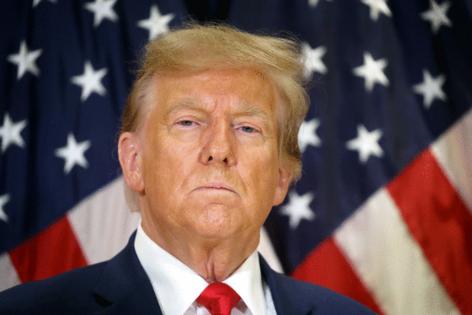US Supreme Court's decision expected to gut parts of Fulton County Trump case
Published in News & Features
ATLANTA — Two days after Christmas in 2020, President Donald Trump met with the top two officials at the U.S. Department of Justice. Angry about his loss to Democrat Joe Biden, Trump allegedly told them, “just say that the election is corrupt, and leave the rest to me and the Republican congressmen.”
The statement was included in Fulton County’s indictment of Trump, evidence, prosecutors said, that the president had solicited false statements. It was one of dozens of actions Trump took that undergirded the racketeering and other criminal charges against him in Georgia.
But the U.S. Supreme Court’s landmark ruling Monday means it won’t be heard by a jury weighing charges against Trump. Under the high court’s decision, the president’s conversations with Justice Department attorneys are immune from prosecution.
The high court’s 6-3 ruling, which grants a president broad immunity for actions he takes as part of his official duties, will eviscerate some of Fulton County’s election interference case against Trump. And it will certainly lead to a no-holds-barred courtroom battle to decide which parts of the indictment remain and which ones must go.
The high court was straightforward in its ruling about the Justice Department contacts. But it was less clear about other key parts of the Georgia case — that Trump spread falsehoods and strong-armed state officials in an effort to steal the 2020 election.
Trump’s Atlanta attorneys are expected to argue that all of the alleged criminal acts facing the former president were committed as part of his core official duties, which the high court said cannot be subject to prosecution. The Fulton District Attorney’s office will contend that most, if not all, of the alleged acts were carried out by Trump the candidate, not by Trump the president.
It will require some careful and difficult sifting of the facts by Fulton County Superior Court Judge Scott McAfee, who is presiding over the case.
One thing McAfee may not consider is the president’s motives.
Such an inquiry, the court said, “would risk exposing even the most obvious instances of official conduct to judicial examination on the mere allegation of improper purpose.”
University of Pennsylvania law professor Claire Finkelstein, who condemned the high court’s decision, said this greatly complicates the ensuing judicial review to determine what was an official act as opposed to a private or personal one.
...continued
©2024 The Atlanta Journal-Constitution. Visit at ajc.com. Distributed by Tribune Content Agency, LLC.







Comments